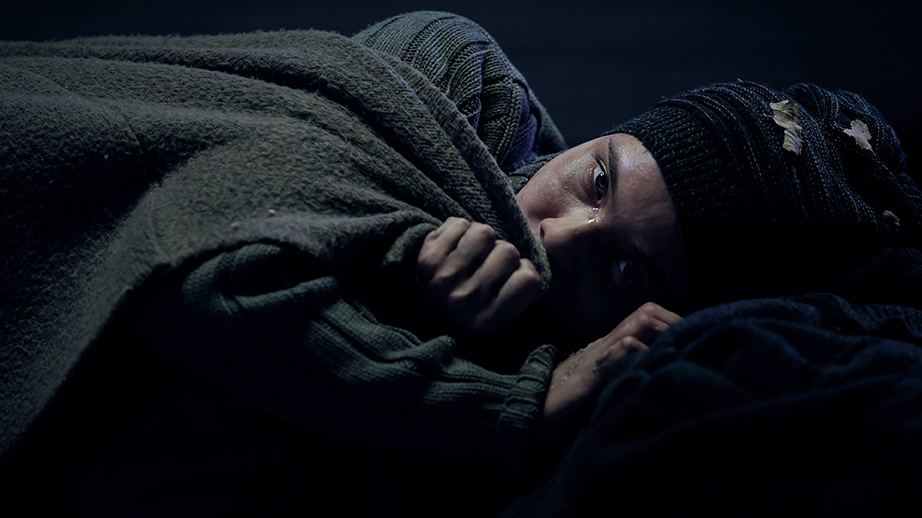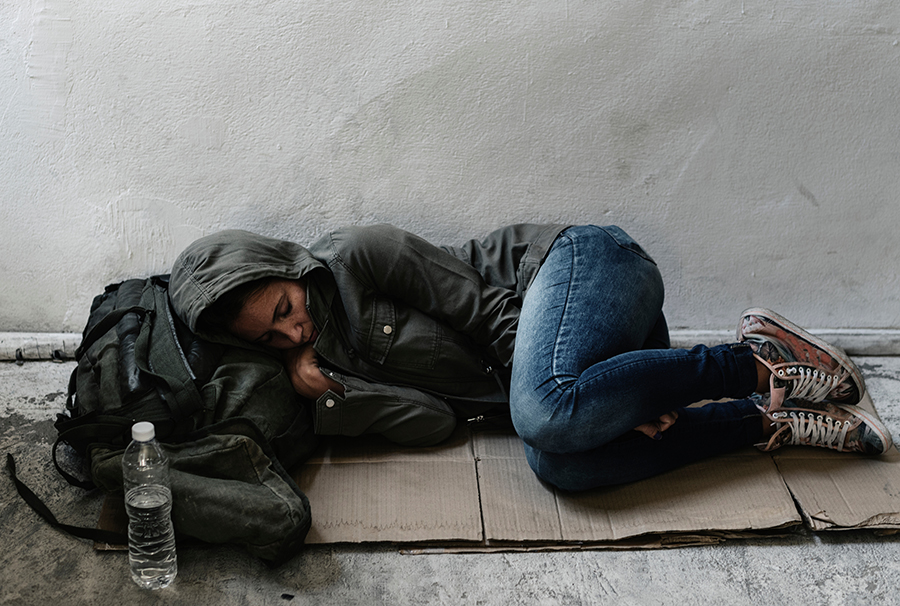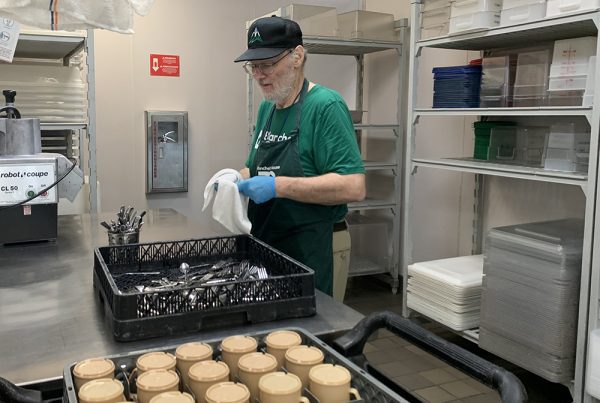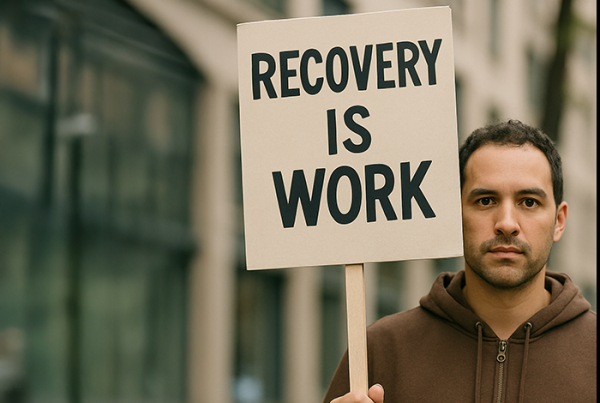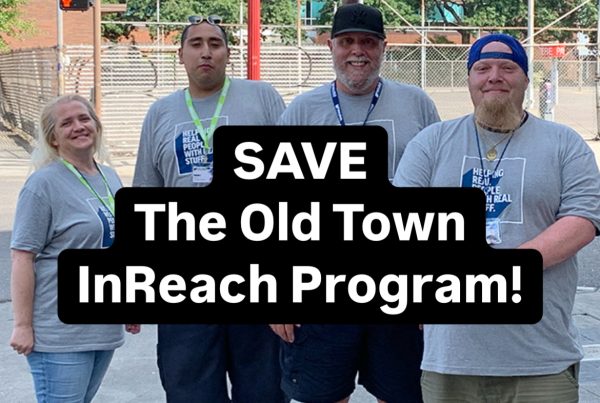Why Portland Needs Overnight Shelters Right Now. Meeting the Moment: The Role of Overnight Shelters in Portland’s Homelessness Crisis
By Scott Kerman, Executive Director, Blanchet House
Portland is a city that cares deeply. We pride ourselves on compassion, progressive values, and commitment to helping our neighbors in need. But when it comes to addressing homelessness, the solutions are complex and often contentious. One solution, however, remains consistently vital and too often underappreciated: the overnight emergency shelter.
In recent months, some Portlanders have raised concerns about shelters that only operate at night and offer limited services during the day. While these concerns come from a desire to see comprehensive, lasting solutions — something we all want — dismissing overnight shelters as insufficient misses a critical point.
For thousands of Portlanders sleeping outside, a safe place to rest at night is not just helpful. It’s lifesaving.
Sleeping Unsheltered in Portland is Cold, Dangerous, and Dehumanizing
We know our city well. The rain, the cold, the long winter nights. Summers keep getting hotter, and urban heat islands create extreme temperatures during the day with no relief at night. Sleeping outside in Portland is not just uncomfortable, it’s dangerous. Assaults, theft, and harassment spike after dark. And for people already struggling with trauma, mental illness, or addiction, the stress of surviving the night without shelter can make everything worse.
Overnight shelters give people immediate safety and a break from being constantly alert. These are not small things. For someone who has spent weeks or months exposed to the elements and the terror of the street, a reliable place to spend the night indoors can be the first glimmer of hope.
Yes, We Need Long-Term Solutions. But First, People Need Rest.
Portland continues to invest in wraparound services like case management, behavioral health care, transitional housing, and permanent supportive housing. Blanchet House & Farm proudly offers long-term transitional housing to up to 70 men at a time. We know firsthand how essential these programs are. But they take time to build and are expensive. It took Blanchet many years to fundraise $9 million to build a 24-person dormitory at Blanchet Farm in Yamhill County. It would have taken longer and cost a lot more money in Portland.
In the meantime, people are outside. Right now. Tonight. And even if they are interested in transitional shelters and housing, there are long waiting lists.
We cannot delay compassion until we can offer a perfect package of services. Low-barrier overnight shelters meet people where they are. They offer a door, a bed, bathrooms, and safety. We should pause to accept how this can be everything to someone on our streets who is terrified of sleeping at night.
We Know Sleep Matters, So Why Do We Deny It to the Homeless?
As a society, we are obsessed with obtaining the perfect night’s sleep. We spend billions each year on high-end mattresses, smart pillows, specialized sheets, white noise machines, sleep-tracking apps, melatonin-infused gadgets, and bedtime stories read by Matthew McConaughey designed to optimize every moment of our rest. Entire industries thrive on our collective fascination with sleep quality.
Yet, in the criticism of overnight shelters, I wonder if some of us have lost sight of the simple goodness of safe sleep. In our quest for perfect sleep, let’s not let the perfect be the enemy of the good in the case of overnight shelters.
Sleep is a Foundation of Health, Not a Luxury
Without sleep, everything else falls apart. We’ve all experienced the effects of even one bad night. Now imagine that stretched over weeks, on pavement, in a tent, under constant stress. Now imagine how those nights are filled with paralyzing terror. Screams and shouting all night long, often from people suffering from mental illness. Now imagine how those nights are dotted with violence. Now imagine you are older, female, or disabled. Now, imagine you are on the pavement at night because you fled trauma or violence. Now, imagine you start taking addictive stimulants so that you don’t fall asleep at night.
A bed for the night provides more than rest. It offers critical restoration of dignity and health. It stabilizes. It prepares the body and mind to take the next step, whenever that moment may come.
In Portland, Overnight Shelter is a Step Forward, not a Step Back
Some worry that supporting overnight-only shelters signals we’ve given up on long-term solutions. On the contrary, it shows we understand the complexity of the humanitarian crisis. We recognize that solving homelessness doesn’t happen overnight, but protection from harm can.
Portland’s shelter system must be flexible and layered. That includes permanent housing and wide-ranging services. It includes transitional housing programs like those offered by Blanchet House & Farm, which last 8–9 months. It includes programs tailored to the unique experiences of individuals. But it also includes emergency, low-barrier places to sleep at night, even if they are closed during the day.
These shelters are not the end of the journey. They can be the beginning of healing for hundreds.
But even if for some people the overnight shelter isn’t a bridge but rather a refuge, that should be enough. It should be enough for a community that should feel moral outrage that so many people spend their nights exposed, afraid, and victimized.
If you found yourself without a bed tonight, would you seek out an overnight emergency shelter, or would you choose to sleep on the sidewalk because the shelter doesn’t offer everything you need? If you would choose the former, let’s not then deny others that same opportunity.
Support Blanchet House’s new overnight shelter for women.














